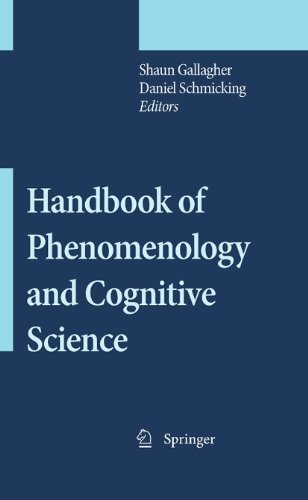

Most ebook files are in PDF format, so you can easily read them using various software such as Foxit Reader or directly on the Google Chrome browser.
Some ebook files are released by publishers in other formats such as .awz, .mobi, .epub, .fb2, etc. You may need to install specific software to read these formats on mobile/PC, such as Calibre.
Please read the tutorial at this link: https://ebookbell.com/faq
We offer FREE conversion to the popular formats you request; however, this may take some time. Therefore, right after payment, please email us, and we will try to provide the service as quickly as possible.
For some exceptional file formats or broken links (if any), please refrain from opening any disputes. Instead, email us first, and we will try to assist within a maximum of 6 hours.
EbookBell Team

5.0
70 reviewsThe Handbook of Phenomenology and Cognitive Science contains a comprehensive and authoritative overview of the main ideas and methods currently used at the intersection of phenomenology and the neuro- and cognitive sciences. The idea that phenomenology, in the European continental tradition, has something to offer to the cognitive sciences is a relatively recent development in our attempt to understand the mind. Here in one volume the leading researchers in this area address the central topics that define the intersection between phenomenological studies and the cognitive sciences. They address questions about methodology, the analysis of perception, memory, imagination, attention, emotion, intersubjectivity, the role of the body and language, and they explore a variety of pathologies that throw light on our everyday experiences. The authors draw on the classical works of phenomenologists such as Husserl, Heidegger, Merleau-Ponty, Gurwitsch, and Sartre, but they also push the traditional lines of phenomenology to new boundaries, mapping out new terrain in connection with the empirical science of the mind and body. These essays are revelatory for both phenomenologists who want to understand what cognitive science can contribute to an understanding of experience, and for scientists who want to understand how they can use phenomenology in their empirical studies.